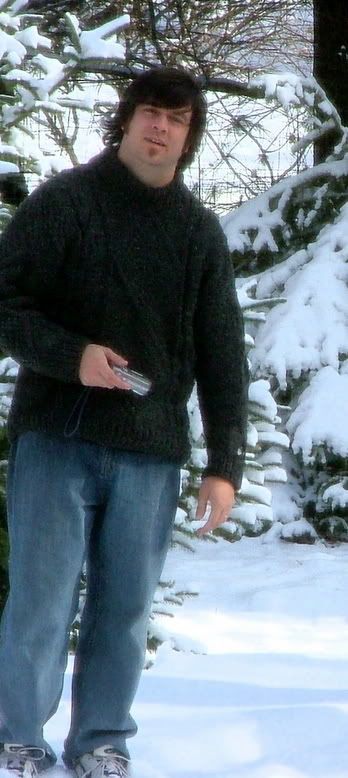weak ties
the other day i was blogging about how my students are all always saying that:
things used to be better than they are now.
and...
today's youth [but fill in your favorite scapegoat] are going to hell in a handbasket.
I've been under the impression for a long time that nostalgia serves a *very* important and useful function -- it helps people to relocate themselves in the social milieu in a way that is not identity threatening.
but i've also been pretty damn sure that its a load of crock. that in fact, things are not getting worse and worse...
(*not* that they're getting better and better, mind you.)
but i bumped into this post the other day where the idea of urban tribes and weak ties is Ethan Watters' way of responding to the kind of generational contempt that has been lavished upon the up-and-coming for as long as "youth" has been a commodified category in the market of media images...
He's suggesting that FRIENDS (*not* the show -- though they're a kind of an urban tribe with fewer-than-the average-number-of-weak-ties) account for milieu of political and social action that more traditional agencies and institutions used to....
These social networks are very hard to see. It's a type of "dark matter": a force that's hard to see but that holds everything together. But they can make a difference: A web of weak acquaintances resulted in the toppling of the Berlin Wall.
....weak ties.....
i love this stuff...
weak ties -- from what i gather here (not enough to know yet) -- Watters is affirming the idea of weak ties in the way that Weick affirms the value of "loose coupling" -- that there is a unique (even emergent) kind of power/resource/ability -- that pools in these kinds of connections, but it's a kind of an inverse power....
...and he goes on to write that we're lacking enough substantial narrative to explain that new way-of-being-in-the-world to ourselves...
i haven't read the book, but i'm intrigued.
i think if you've ever thought:
hmm friends today are what family was fifty years ago for people....
you may enjoy this interview.
peace~
things used to be better than they are now.
and...
today's youth [but fill in your favorite scapegoat] are going to hell in a handbasket.
I've been under the impression for a long time that nostalgia serves a *very* important and useful function -- it helps people to relocate themselves in the social milieu in a way that is not identity threatening.
but i've also been pretty damn sure that its a load of crock. that in fact, things are not getting worse and worse...
(*not* that they're getting better and better, mind you.)
but i bumped into this post the other day where the idea of urban tribes and weak ties is Ethan Watters' way of responding to the kind of generational contempt that has been lavished upon the up-and-coming for as long as "youth" has been a commodified category in the market of media images...
He's suggesting that FRIENDS (*not* the show -- though they're a kind of an urban tribe with fewer-than-the average-number-of-weak-ties) account for milieu of political and social action that more traditional agencies and institutions used to....
These social networks are very hard to see. It's a type of "dark matter": a force that's hard to see but that holds everything together. But they can make a difference: A web of weak acquaintances resulted in the toppling of the Berlin Wall.
....weak ties.....
i love this stuff...
weak ties -- from what i gather here (not enough to know yet) -- Watters is affirming the idea of weak ties in the way that Weick affirms the value of "loose coupling" -- that there is a unique (even emergent) kind of power/resource/ability -- that pools in these kinds of connections, but it's a kind of an inverse power....
...and he goes on to write that we're lacking enough substantial narrative to explain that new way-of-being-in-the-world to ourselves...
i haven't read the book, but i'm intrigued.
i think if you've ever thought:
hmm friends today are what family was fifty years ago for people....
you may enjoy this interview.
peace~



<< Home